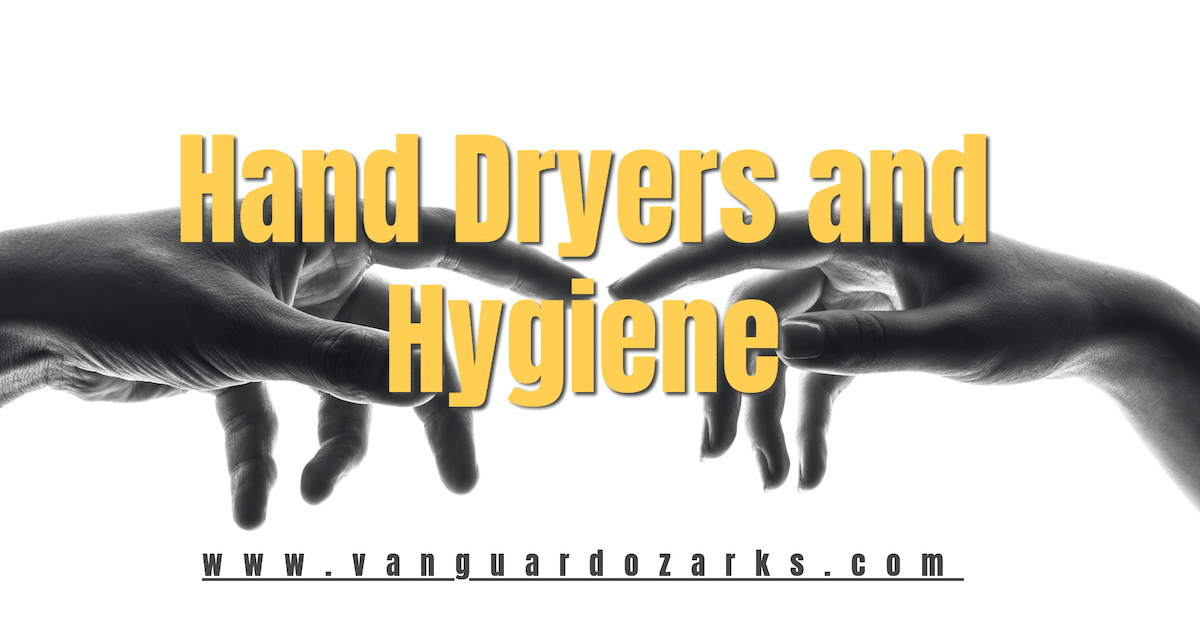There is some evidence to suggest that air-blown hand dryers can impact public health, although the extent of this impact is still a matter of debate.

Do Air-Blown Hand Dryers Spread Disease?
Air-blown hand dryers can help reduce the spread of germs and bacteria by drying hands quickly and effectively, which can help prevent the spread of diseases like the common cold and flu.
They also eliminate the need for paper towels, which can help reduce waste and have a lower environmental impact.
However, air-blown hand dryers can also spread bacteria and germs if they are not properly maintained or cleaned.
Studies have found that the powerful air currents produced by these machines can cause bacteria and other pathogens to become airborne, potentially leading to the spread of disease.
Furthermore, some studies have suggested that air-blown hand dryers may actually be less hygienic than paper towels, as they can blow bacteria and other contaminants onto other surfaces in the bathroom, such as sink handles and countertops, potentially increasing the risk of cross-contamination and the spread of disease.
Benefits of Air-Blown Hand Dryers
- Warm air hand dryers offer several benefits, including cost savings, environmental friendliness, and convenience.
- They can save businesses money by reducing the need for paper towels and the associated costs of purchasing and disposing of them.
- Warm air hand dryers are also more environmentally friendly than paper towels, as they do not contribute to the waste stream.
- Additionally, warm air hand dryers are convenient for users, providing a quick and efficient way to dry hands.
- According to a study published in the International Journal of Hygiene and Environmental Health, warm-air hand dryers were found to be more energy efficient and produce fewer greenhouse gas emissions than paper towels. [2]
Known Risks
There are scientifically validated concerns regarding air-blown hand dryer use.
Some studies have found that air-blown hand dryers can cause bacteria and pathogens to become airborne, potentially leading to the spread of disease.
For example, a study published in the Journal of Hospital Infection found that jet air dryers could spread more than 190 times more bacteria than paper towels. [4]
Another study found that air-blown hand dryers can spread germs up to three feet from the device, potentially contaminating other surfaces in the restroom. [5]
Pros and Cons Vs. Paper Towels
Paper Towels:
Pros:
- They are effective in removing moisture and bacteria from the hands.
- They are disposable and therefore can reduce the risk of cross-contamination.
- They can be more convenient and quicker to use than air-blown hand dryers.
- They do not require a power source or installation.
Cons:
- They generate waste and can have a negative environmental impact.
- They can be expensive if used in high-volume restrooms.
- They require a consistent supply of paper towels to be available.
Air Blown Hand Dryers:
Pros:
- They are more environmentally friendly than paper towels because they don't generate waste.
- They are more cost-effective over time, as they do not require a consistent supply of paper towels.
- They are faster and more convenient for users than paper towels.
Cons:
- They can cause bacteria and pathogens to become airborne, potentially leading to the spread of disease.
- They can be loud and disruptive to others in the restroom.
- They can be less effective than paper towels at removing moisture from hands, leading to potential discomfort for users.
- They require a power source and installation.
Addressing the Challenges With Enhanced Cleaning
Enhanced facility cleaning can help address the challenges to public health presented by air-blown hand dryer use by:
- Regular cleaning of air-blown hand dryers - Regular cleaning and maintenance of hand dryers can help prevent the buildup of harmful bacteria and reduce the risk of transmission.
- Increased frequency of cleaning and disinfecting surfaces - Since air-blown hand dryers can spread bacteria and viruses onto surrounding surfaces, increasing the frequency of cleaning and disinfecting can help mitigate the risk of transmission.
- Providing alternative hand-drying options - Offering alternative hand-drying options, such as paper towels, can provide a more hygienic alternative to air-blown hand dryers and reduce the risk of bacterial and viral transmission.
- Hiring professional cleaning services - Outsourcing cleaning services to professional cleaning companies can ensure that the facility is cleaned and maintained to a high standard, reducing the risk of transmission of bacteria and viruses.
References & Resources
- Stimson, E. (2021, September 2). Woman's viral TikTok reveals how much bacteria live on public bathroom hand dryers. Fox News. https://www.foxnews.com/lifestyle/womans-viral-tiktok-reveals-much-bacteria-live-public-bathroom-hand-dryers-trigger-warning
- Max Dry. (n.d.). 5 Benefits of Warm Air Hand Dryers. Max Dry. Retrieved May 12, 2023, from https://maxdry.com.au/blogs/news/5-benefits-of-warm-air-hand-dryers
- Kimmitt, P. T., & Redway, K. F. (2016). Evaluation of the potential for virus dispersal during hand drying: a comparison of three methods. Applied and Environmental Microbiology, 82(23), 7180–7186. https://doi.org/10.1128/AEM.00044-18
- Ansari, S. A., Springthorpe, V. S., Sattar, S. A., Rivard, S., & Rahman, M. (1991). Potential role of hands in the spread of respiratory viral infections: studies with human parainfluenza virus 3 and rhinovirus 14. Journal of Clinical Microbiology, 29(3), 551–559. https://www.ncbi.nlm.nih.gov/pmc/articles/PMC2698236/
- Best, E. L., Parnell, P., & Wilcox, M. H. (2014). Microbiological comparison of hand-drying methods: the potential for contamination of the environment, user, and bystander. Journal of Hospital Infection, 88(2), 199–206. https://doi.org/10.1016/j.jhin.2014.09.005
- The Guardian. (2019, April 25). Air dryers or paper towels: which is more hygienic? The Guardian. https://www.theguardian.com/society/2019/apr/25/hand-dryers-paper-towels-hygiene-dyson-airblade
Takeaway
Air-blown hand dryers have their advantages and disadvantages.
While they are more environmentally friendly and cost-effective than paper towels, they can also spread harmful bacteria and viruses if not cleaned and maintained correctly.
Regular restroom cleaning is the best option to address the challenges presented by air-blown hand dryers, as it helps prevent the buildup of harmful bacteria and reduces the risk of transmission.
By prioritizing regular cleaning and maintenance of air-blown hand dryers, businesses can provide a safer and healthier environment for their patrons.
Onboarding and managing the requisite labor and material resources in the current market may prove cost-prohibitive and undesirable for many organizations.
Outsourcing is a proven method for onboarding skilled service providers equipped with the latest training, processes, and technologies for a fraction of the price of maintaining a comparable service in-house.
Contact us today and discover why Vanguard Cleaning Systems® is the Standard of Clean® for businesses throughout Northwest Arkansas, Missouri, and Oklahoma.
In Oklahoma, dial 918-960-4450
In Arkansas, dial 479-717-2410
In Missouri, dial 417-812-9777

